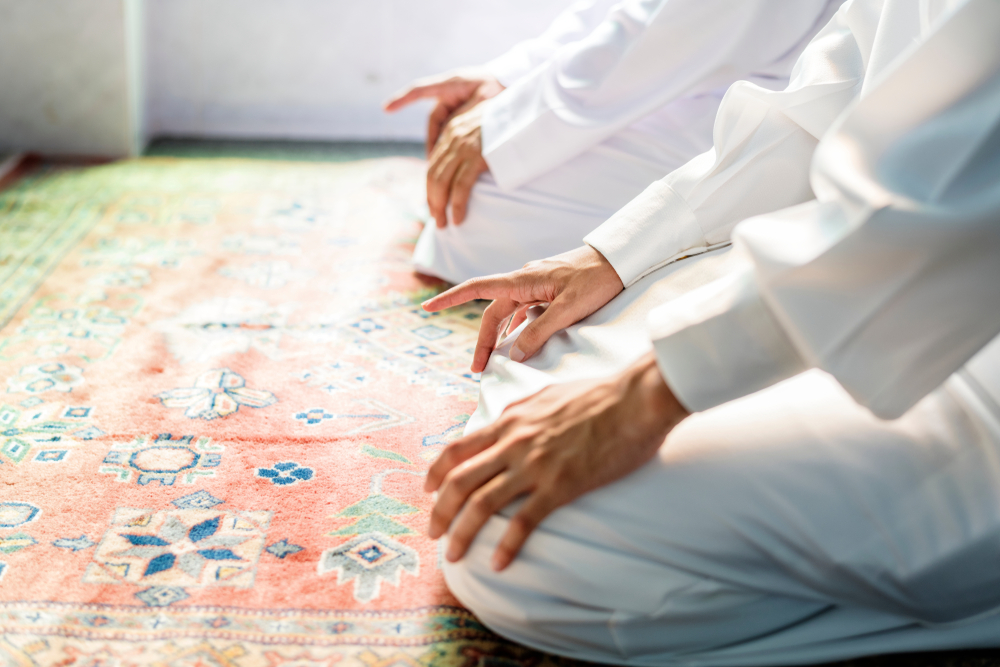When Does One Perform Tashahhud If One Is Unsure about the Rak’a?
Hanafi Fiqh
Answered by Shaykh Yusuf Weltch
Question
I know when you’re completely unsure about the number of rak‘as you have prayed, you go with the lower number. But I didn’t know that you still pray the tashahhud, for the lesser rak‘a. For example, if you’re unsure of three or four, and you go with three, I recently learned you still pray the tashahhud in the third in addition to fourth. If I have not been reciting the tashahhud during the third in those scenarios, are those prayers valid?
Secondly, if you’re unsure if you’re in the first or second raka or about the second and third, and you choose to go with the lower number, do you also recite the tashahhud in all of the rak‘as as well?
Answer
In the Name of Allah, the Most Merciful and Compassionate
If one is unsure of the number of units (rak‘a) they have prayed, they follow the following protocol:
Firstly, they make up their mind and decide between the two options. A or B. Once a decision is made they continue accordingly and no prostration of forgetfulness is due merely based on the uncertainty. [Ibn ‘Abidin, Radd al-Muhtar]
Secondly, If they are genuinely unable to decide and they remain 50/50 between the two choices (A or B), they choose the lesser of the two possibilities. However, they will finish out the prayer in such a way that would fulfill all of the obligatory integrals (arkan) and necessary acts (wajibat): see the example below. The prostrations of forgetfulness are due at the end of the prayer if this option is taken. [Ibid.]
For example:
Zayd is praying and doubts about having prayed two or three units. Due to an inability to choose decisively between the two, he proceeds based on the choice of two. He sits at the end of that unit, as this is the second unit according to his choice. He performs the next unit (the third according to his choice) and sits and recites the tashahhud as well. This time because it could be the fourth and final unit if his original choice of two was incorrect. Lastly, he performs the fourth unit (according to his choice) and sits and recites the tashahhud because it’s the last unit (even though it could be the fifth unit).
The Principle: Certainty Takes Precedence Over Doubt
When one is in genuine doubt (shakk) and is unable to decide between the two possibilities, he proceeds in the prayer based on the lesser of the two possibilities – as this possibility entails certainty (i.e., if he is choosing between two and three, he is certain that he prayed, at the very least, two. And three is locus of the doubt). [Ibid.]
Omitting the Cautionary Sitting and Recitation of the Tashahhud Supplication
If one, while attempting the second method explained above, did not perform the sitting and recitation of the tashahhud supplication but they did perform the prostrations of forgetfulness – the prayer is still considered valid, however, such an action would be prohibitively disliked, if done intentionally or due to ignorance of the issue. [Ibid.]
If he did not perform the prostration of forgetfulness, the prayer is still technically valid, but prohibitively disliked and necessary to make up if the prayer time is remaining. If this occurred in many prayers in the past, then one is not obliged to make them up as that would entail undue hardship, but must follow the correct method explained above from here on. [Ibid.]
Hope this helps
Allah knows best
[Shaykh] Yusuf Weltch
Checked and Approved by Shaykh Faraz Rabbani
Shaykh Yusuf Weltch is a teacher of Arabic, Islamic law, and spirituality. After accepting Islam in 2008, he then completed four years at the Darul Uloom seminary in New York where he studied Arabic and the traditional sciences. He then traveled to Tarim, Yemen, where he stayed for three years studying in Dar Al-Mustafa under some of the greatest scholars of our time, including Habib Umar Bin Hafiz, Habib Kadhim al-Saqqaf, and Shaykh Umar al-Khatib. In Tarim, Shaykh Yusuf completed the memorization of the Qur’an and studied beliefs, legal methodology, hadith methodology, Qur’anic exegesis, Islamic history, and a number of texts on spirituality. He joined the SeekersGuidance faculty in the summer of 2019.
